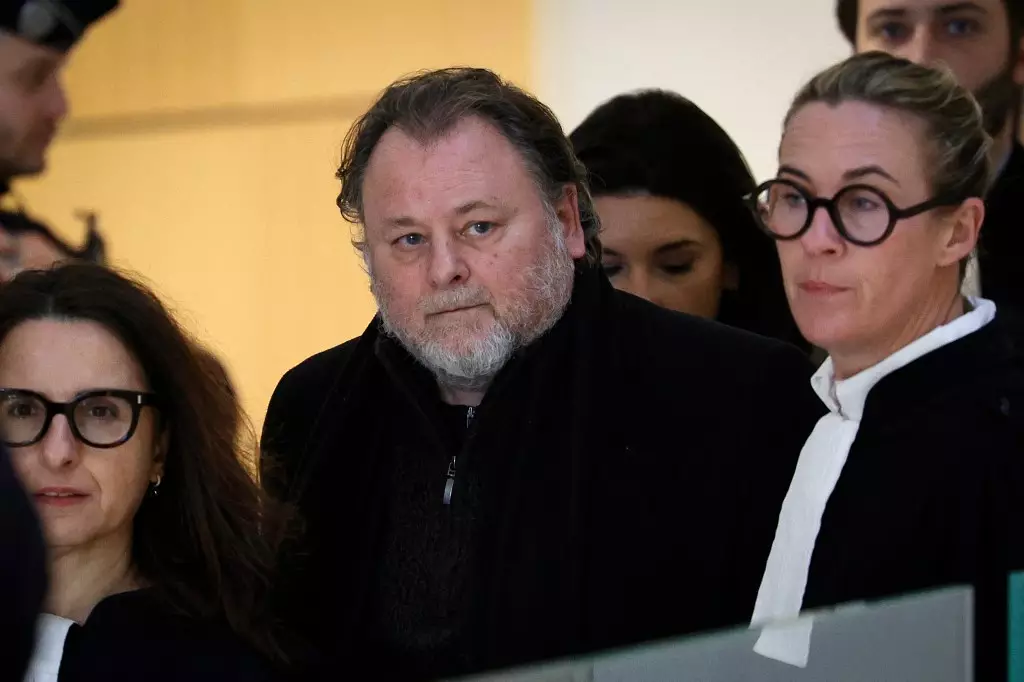The conviction of filmmaker Christophe Ruggia marks a watershed moment in the ongoing struggle against sexual misconduct in various sectors, particularly within the realm of cinema. In December, Ruggia was sentenced to two years of house arrest, equipped with an electronic monitoring device, while another two years of this sentencing was suspended. The French legal system’s response to the allegations put forth by actress Adèle Haenel represents a significant shift in how such claims are taken seriously, echoing the sentiments of the global #MeToo movement.
Haenel’s courageous decision to publicly emerge with her accusations in 2019—targeting Ruggia for sexual assault and abuse during their working relationship—shed light on a culture of silence that often prevails in the entertainment industry. By coming forward, Haenel risked her career and subjected herself to scorn from a film community that at the time seemed unprepared to defend her. This trial has not only recast her journey but also ignited conversations about accountability and responsibility in environments that have historically shielded abusers.
Ruggia’s alleged offenses, which spanned a troubling three-year period starting when Haenel was a mere 12 years old, showcased a disturbing power dynamic that raises pressing questions about consent and manipulation in the industry. The fact that Ruggia, aged 36 at the time, was in a position of authority and that Haenel was similarly vulnerable due to her career aspirations accentuates the severity of these events. Notably, he argued that her accusations were motivated by a sense of personal revenge rather than rooted in actual experiences of trauma—an unfounded claim that fails to engage with the critical realities of abuse.
The courtroom became a stage for heightened tensions as Haenel reacted vocally to Ruggia’s defense. Her outburst—an encapsulation of frustration and empowerment—represented not only her personal anguish but also resonated with countless other victims who encounter dismissive narratives when they seek justice. Herein lies a profound truth: the struggle for accountability is fraught with resistance, and the silencing of victims rather than the perpetrators remains a prevalent challenge.
This case has laid bare the systemic issues within the French cinema landscape that allow predators to thrive. In the wake of the Ruggia-Haenel trial, it’s evident that the industry itself has begun to reckon with its past. The shift in the Césars Academy’s policies, temporarily barring professionals under investigation for sexual violence from nominations, is a step towards fostering a safer environment for women. Yet, it remains to be seen whether these changes will lead to meaningful reforms or be merely cosmetic in nature.
The controversy surrounding Roman Polanski’s win for Best Director at the César Awards in 2020 serves as a chilling reminder of the leniency extended to certain figures despite their troubling legacies. The collective outrage from feminist activists and Haenel’s own actions—stomping out of the ceremony—have propelled the conversation about complicity and the culture of silence into the mainstream.
The recent resurgence of the #MeToo movement in France, prompted by public figures like Judith Godrèche stepping forward with her allegations against other directors, speaks volumes about the potential for change. Her revelations come at a time when discourse surrounding sexual violence is gaining heightened awareness, thereby encouraging others to confront their own experiences and share them publicly.
Haenel’s decision to exit the film industry due to its pervasive complacency towards sexual predators highlights a critical dilemma. Can genuine change occur within an industry that continues to offer platforms to individuals accused of grave misconduct? Her departure starkly emphasizes the need for systemic changes, and, without doubt, her legacy will inspire ongoing dialogue and action surrounding these pressing issues.
As the French film industry grapples with this evolving landscape, the Ruggia-Haenel trial will be remembered not only for the conviction of an accused but as a pivotal moment that carved out a path for awareness, advocacy, and lasting transformation. If there is one takeaway from this landmark case, it is the imperative for collective accountability, as both victims and allies work towards dismantling a culture that has long shielded abusers. The way forward is undoubtedly fraught with challenges, but Haenel’s bravery provides a beacon of hope for many still confined to silence.

